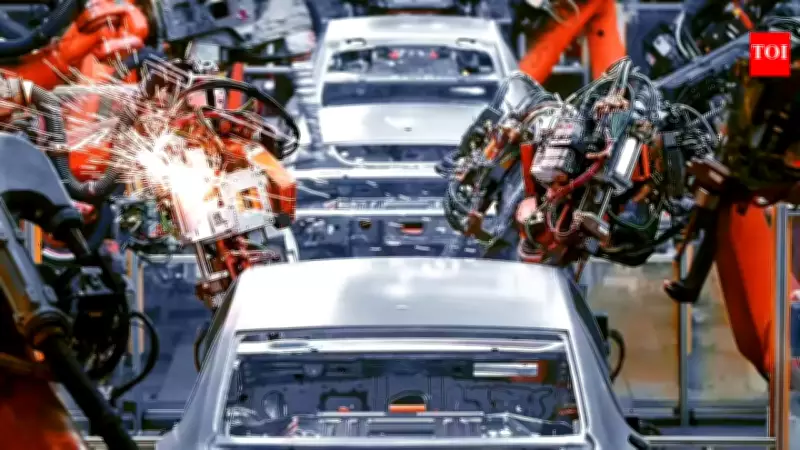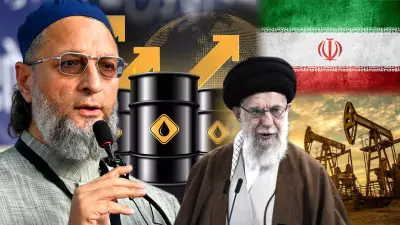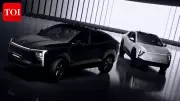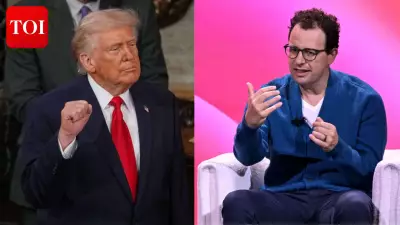Politics
Owaisi Warns of Oil Price Surge After Khamenei Killing, Citing Regional Tensions
Asaduddin Owaisi condemns the reported killing of Ayatollah Ali Khamenei, warning that Iran's retaliation may escalate regional tensions and push global oil prices higher, impacting India's economy.
World
Iran's IRGC Strikes U.S. Navy-Linked Vessels and Bases Across Gulf Nations
Iran's Islamic Revolutionary Guard Corps has launched Operation True Promise 4, targeting American-linked military assets in the Gulf region with drone and missile attacks following reports of Ali Khamenei's death.
Business
Stock Markets Brace for Volatile Week as Middle East Conflict Escalates
Indian stock markets are expected to open with a negative bias as escalating US-Israel-Iran conflict raises crude prices and geopolitical risks, with analysts warning of prolonged impact on equities.
Entertainment
BRIT Awards 2026 Chaos: Sombr Pushed Off Stage Mid-Performance in Shocking Incident
A shocking incident at the 2026 BRIT Awards saw rising star Sombr pushed off stage during his performance, sparking chaos and security concerns before a surprising twist emerged.
Sports
Lifestyle
Technology
White House AI Designation Threatens Google, Amazon, Microsoft Billions
Dean Ball warns the White House's 'supply chain risk' tag on Anthropic could force Google, Amazon, and Microsoft to divest billions, calling it 'attempted corporate murder' and chilling US AI investment.
Grok AI's 'Prediction' of Iran Strike Debunked as Coincidence
A viral claim that Elon Musk's AI chatbot Grok predicted the date of US-Israel military action against Iran is false, stemming from a hypothetical exercise, not real foresight.
US DPA Threat Against Anthropic AI Ends in Defense Ban
The Pentagon's ultimatum to Anthropic using the Defense Production Act has concluded with the AI company being barred from defense applications. This marks a significant shift in how the decades-old law could be applied to technology firms.
Fortnite Love and Legends Final Power Hour Event Details
Fortnite's Love and Legends Power Hour event concludes on March 1, 2026, offering exclusive Candy Hearts and cosmetics. Get timings for all regions and details on loot.
Honor Magic V6 Launched with Near-Creaseless Display
Honor has unveiled the Magic V6 foldable smartphone, featuring a nearly creaseless inner display and advanced hinge technology, ahead of its showcase at MWC 2026.
Health
Get Updates
Subscribe to our newsletter to receive the latest updates in your inbox!
We hate spammers and never send spam













































